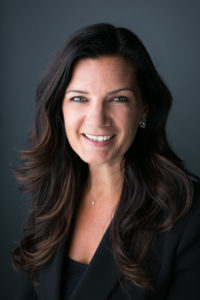HR LeadersTalk with Kim Toews: “Be Bold, Be Curious”

Kim Toews
Kim Toews took on her current role as executive vice-president of HR for HSBC Canada in 2017. Prior to this she held a range of roles both in Canada and globally with HSBC. HSBC is the leading international bank in Canada and the only major bank headquartered in BC. Canada is a priority market for HSBC and has been a top contributor to Group profits for many years. In Canada, HSBC has approximately 130 branches and 5,700 employees from coast-to-coast.
Why did you choose HR or how did it choose you?
I didn’t really have a master plan but I did know I wanted to work in a company that offered a lot of career opportunities to keep me challenged and motivated. I was working in a branch moving through a variety of roles with a focus on banking processes and people so I spoke with HR quite a bit. I tripped into the HR field by circumstance as they had an open role in Vancouver and this was where I needed to move to as I was recently engaged to my now husband who lived in Vancouver. I am a big extrovert so seeing the impact this role has on people really drew me to the profession and has kept me engaged ever since.
What do you think is the greatest emerging opportunity/challenge for HR professionals?
The concept of advisory. We work in an amazing field with lots of technology and cool new ways of working that is evolving the workplaces we find ourselves in. There are some basic things in HR though that will never be replaced in my opinion. Any business will always want help on how to manage employees and achieve strategic business objectives in the best way possible, and how to get the most out of their team members.
We can use technology to analyze scenarios, data and business challenges which is all necessary and valuable, but that doesn’t replace the professional advice-giving function we play in the HR field. That is what I find leaders truly appreciate and seek and it allows us to stand out as HR professionals. Our intuition and ability to truly help a leader be great. You can’t be afraid to have a view and while you need to package it effectively and professionally, it is a truly valuable skill set we provide that technology will not be able to replace. It isn’t about data it is about real insights. I’m not sure if we will ever get fully formed insights without human experience.
That being said, you can’t do much without data. All sizes of organizations need data metrics so that they have some basic intelligence. Tracking simple metrics and pooling them together to paint an insightful picture for senior management is far more powerful than straight observations or feelings.
With social media and technology advancements, what is your prediction for the future of HR as a function?
It just gets trickier and trickier with everything being so public. I have seen examples of very good people who may be in a temporary bad head space and make silly or ill-advised comments which had the potential to sink their careers. In the past, people would make a mistake like this and learn from it within a relatively small community of observers and move on. But now it lives on the Internet and social media forever.
Technology has a profound impact on how you create your own brand as a professional and as a person. We used to be able to control this much more closely. Now the simplest of things like the articles you follow contribute to your professional/personal brand when people scan LinkedIn or others social media sites. So don’t underestimate what that will mean for you from a professional perspective.
I didn’t have to manage my online brand in my career. It was based on developing good relationships and not underestimating any relationship. Now relationship management pops up in social media. Now I worry about not doing enough on sites like Linkedin. Am I leveraging it enough as a senior officer of my company or the Head of HR? If I was young HR person I would start being as active as possible. Leverage the value of a social media presence but also manage it closely.
As HR professionals, we also need to help our businesses navigate this. What you do as an organization has a big impact on current and future employees, not to mention customers. What should we be doing online/what shouldn’t we?
The one thing we do need to keep in mind is not to allow social media to dictate what and how we do things. We can’t ignore it, but it can’t control what it either.
What advice for areas or hot skills do you have for young professionals?
It obviously depends upon your career objectives. If you want to be a head of HR then you want to ensure you have more than a generalist role on your resume. When you are in an HR specialty like compensation or talent, you can speak with a level of depth and expertise that is impressive. In my experience this resulted in faster career progression. I am a generalist at heart but understood that I needed more depth than the pure generalist route to keep progressing.
But I would say my best advice is more of a mindset thing. Be uncomfortable. Be curious, be bold and don’t limit yourself, others will be happy to do that for you.
Drew Railton, CPHR is managing partner, Western Canada for Caldwell Partners.
(PeopleTalk Summer 2018)






